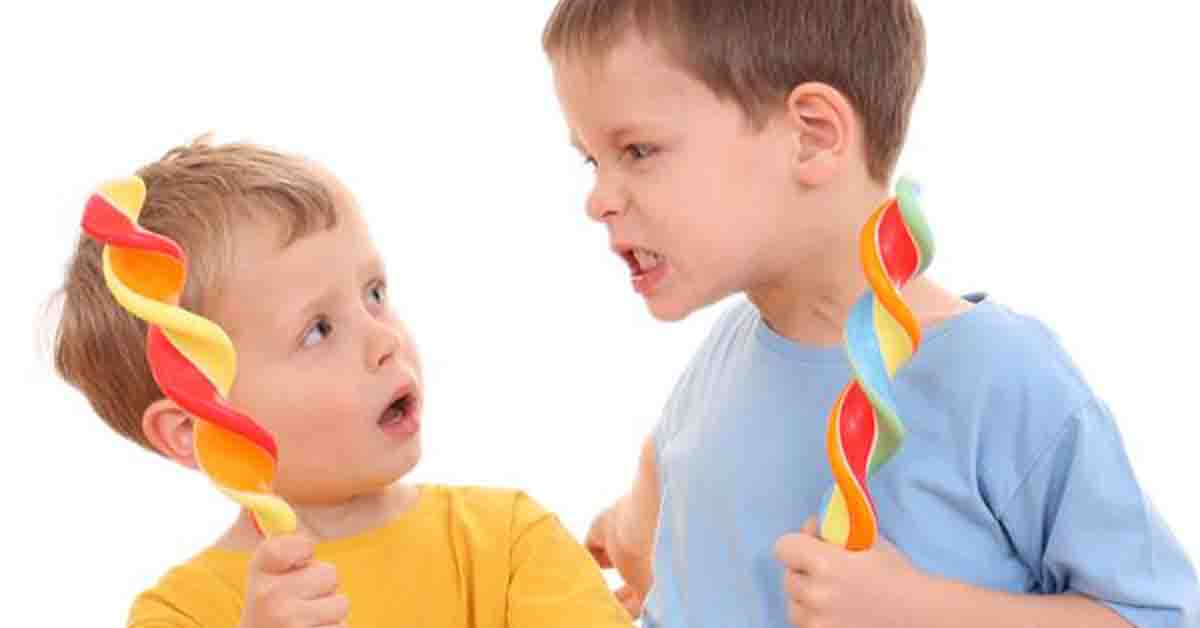Are you tired of your toddler’s hitting behavior? Does it feel like a constant battle to keep the peace? You’re not alone. Many parents face this challenge, but there are effective strategies to help your little one learn more gentle ways to express their emotions. In this post, we’ll explore the reasons behind toddler hitting and provide practical tips on how to stop a toddler from hitting.
How to Stop a Toddler from Hitting:
By understanding the underlying causes and implementing these techniques, you can create a harmonious home environment that encourages positive behavior and emotional growth.
1. Why Does My Toddler Hit? How to Stop a Toddler from Hitting?
Before we delve into solutions, let’s explore the underlying reasons for this behavior:
- Frustration: Toddlers may resort to hitting when they feel overwhelmed or frustrated.
- Attention-seeking: Sometimes, hitting can be a way to get your attention, even if it’s negative attention.
- Imitation: Children learn by observing, and if they’ve seen hitting modeled by others, they may mimic this behavior.
- Lack of communication skills: Toddlers may not have the words to express their feelings, leading to physical outbursts.

2. Effective Strategies to Stop Toddler Hitting:
- Stay Calm and Set Clear Limits:
- Remain calm: Reacting with anger or frustration can escalate the situation.
- Set clear boundaries: Use a simple, firm “No hitting” to establish clear limits.
- Offer alternatives: Teach your child alternative ways to express their emotions, such as using words, drawing, or playing with a toy.
- Empathize and Redirect:
- Validate feelings: Acknowledge your child’s feelings without condoning the behavior. For example, “I know you’re feeling frustrated, but hitting hurts.”
- Redirect energy: Distract your child with a preferred activity or offer a comforting hug.
- Time-Outs (Used Wisely):
- Use time-outs as a last resort: If necessary, use time-outs as a consequence, but ensure they are used appropriately and consistently.
- Keep it brief: Time-outs should be short, age-appropriate, and supervised.
- Positive Reinforcement:
- Reward positive behavior: Praise and reward your child for positive behavior, such as using kind words or sharing toys.
- Model gentle behavior: Children learn by observing, so be mindful of your own behavior and model gentle, respectful communication.
- Seek Professional Help (If Needed):
- Consult a child psychologist: If you’re struggling to manage your child’s behavior, consider seeking professional advice.
- Join a parenting support group: Connecting with other parents can provide valuable insights and emotional support.
3. How to Stop a Toddler from Hitting a Parent?
Hitting parents is often a sign of frustration or seeking attention. Try these approaches:
- Stay Calm: Reacting calmly instead of with anger helps de-escalate the situation.
- Set Clear Boundaries: Use simple language like, “Hitting hurts, and we don’t do that.”
- Redirect Behavior: Offer alternative ways to express emotions, like squeezing a stress ball.

4. How to Stop a Toddler from Biting and Hitting?
Biting and hitting are often linked behaviors in toddlers. Address both by:
- Offering Alternatives: Provide teething toys or chewable objects if biting is due to teething.
- Teaching Words for Emotions: Encourage phrases like, “I’m mad” instead of acting out physically.

5. Why Does My Toddler Hit Me, but Not Daddy?
Your toddler might feel more comfortable expressing their big emotions with you because you’re their primary caregiver.
- Balance Roles: Encourage your partner to share caregiving responsibilities.
- Model Positive Interaction: Show how to manage frustrations gently.
6. Toddler Hitting Others for No Reason:
Even if it seems like there’s no reason for the hitting, it often stems from overstimulation.
- Create a Calm Environment: Reduce loud or overwhelming activities.
- Use Visual Cues: Visual reminders, like “gentle hands” posters, help toddlers understand expectations.
7. How to Stop a Child from Hitting Others at School:
How to stop a toddler from hitting If your child is hitting at school:
- Collaborate with Teachers: Work closely with teachers to create consistent strategies.
- Reinforce Social Skills at Home: Role-play scenarios to teach empathy and sharing.
- Consistent Discipline: Explain that hitting has consequences, such as losing playtime privileges.
8. How to Stop a Toddler from Hitting Baby Sibling?
Jealousy or frustration may lead toddlers to hit their baby siblings.
- Encourage Inclusion: Involve your toddler in simple baby care tasks to reduce jealousy.
- Teach Gentle Touches: Show and praise gentle touches with the baby.
- Provide Attention: Spend quality one-on-one time with your toddler daily.
9. Why Does My Toddler Hit Me and Laugh?
Laughing after hitting can be a sign of seeking attention or testing boundaries.
- Ignore Attention-Seeking Behavior: Avoid reacting dramatically, which might reinforce the behavior.
- Introduce Time-Outs: A brief, calm time-out teaches that hitting has consequences.
- Reward Positive Behavior: Praise your toddler when they use their words instead of their hands.
10. Bonus Tips for Managing Toddler Aggression:
- Teach Emotional Regulation: Simple techniques like deep breaths or counting can help toddlers calm down.
- Model Empathy: Show understanding by acknowledging their emotions, such as, “I see you’re upset.”
Conclusion:
Helping your child learn to manage their emotions is a crucial part of parenting, especially when dealing with behaviors like hitting. By understanding the reasons behind their actions and implementing consistent strategies, you can effectively address how to stop a toddler from hitting. Whether it’s setting clear boundaries, teaching gentle interactions, or collaborating with teachers for support, these steps will guide your toddler toward healthier ways of expressing themselves. Remember, patience and positive reinforcement are key in this journey. With time and effort, you’ll create a calmer and more understanding environment for your child to thrive.
FAQS:
1. How do you discipline a toddler for hitting?
Discipline a toddler for hitting by calmly setting clear boundaries, such as saying, “Hitting is not okay.” Redirect their energy to appropriate activities and consistently use consequences like time-outs when needed. Reinforce positive behavior with praise.
2. How long does the hitting phase last in toddlers?
The hitting phase in toddlers typically lasts a few months to a year, depending on the child’s emotional and social development. Consistent guidance and teaching alternative ways to express feelings can help shorten this phase.
3. How do you respond when a toddler hits you?
When a toddler hits you, stay calm, avoid reacting with anger, and firmly state, “We don’t hit.” Redirect their attention to a more appropriate behavior and help them identify their feelings with words.
4. Is it normal for your toddler to hit you?
Yes, it’s normal for toddlers to hit as they are still learning to express their emotions. Hitting often stems from frustration, overstimulation, or testing boundaries. With patience and guidance, this behavior can be managed.
5. How to stop a 4-year-old from hitting at school?
To stop a 4-year-old from hitting at school, collaborate with teachers to establish consistent strategies. Reinforce good behavior at home with role-playing and teach social skills like sharing and using words to express feelings.
6. How to stop a 2-year-old from hitting and throwing things?
Address hitting and throwing by calmly removing the child from the situation and explaining why the behavior is unacceptable. Provide alternative ways to express frustration, such as using words or engaging in sensory play.
External Resources:
Zero to Three: Managing Toddler Emotions
American Academy of Pediatrics: Toddler Behavior

Empowering parents to raise happy, confident kids. Get practical parenting tips and advice on our blog, Smart Parent Guides.
